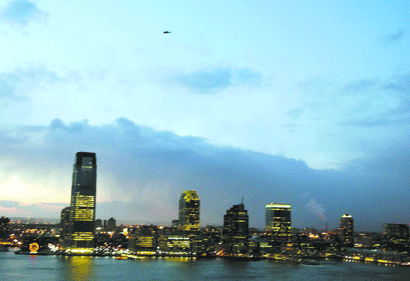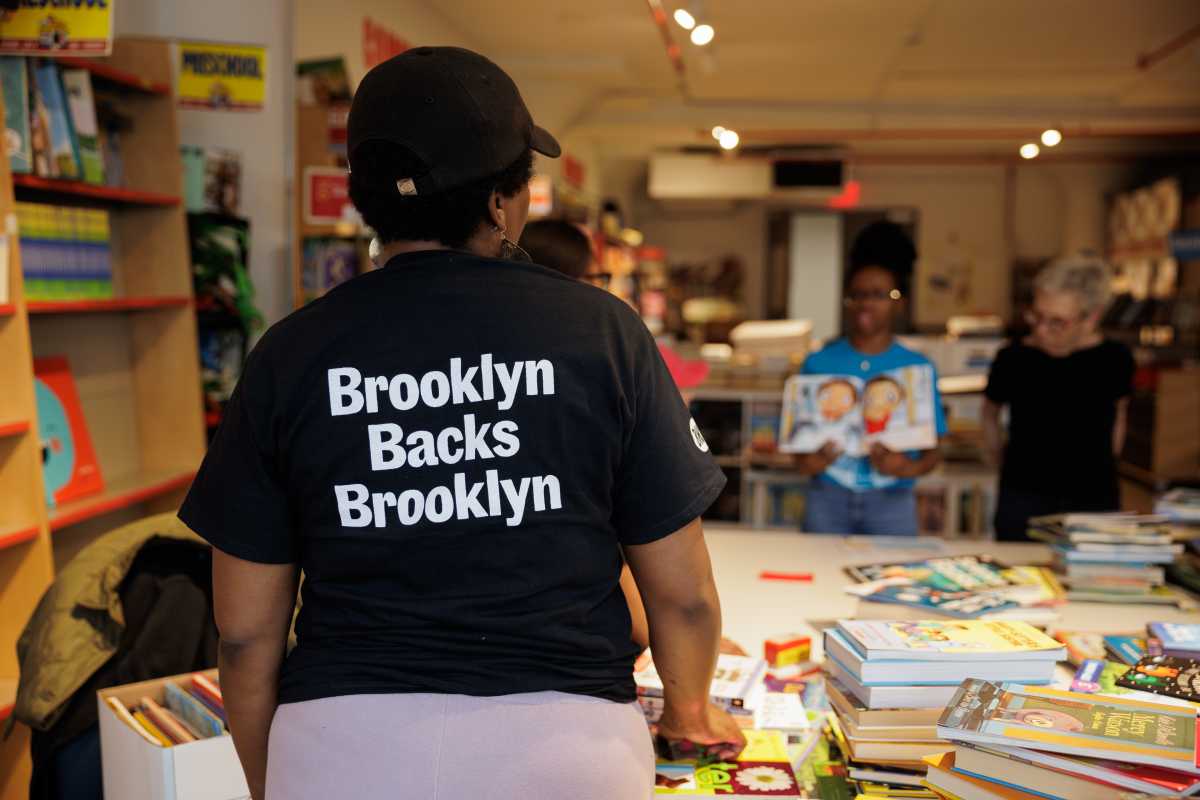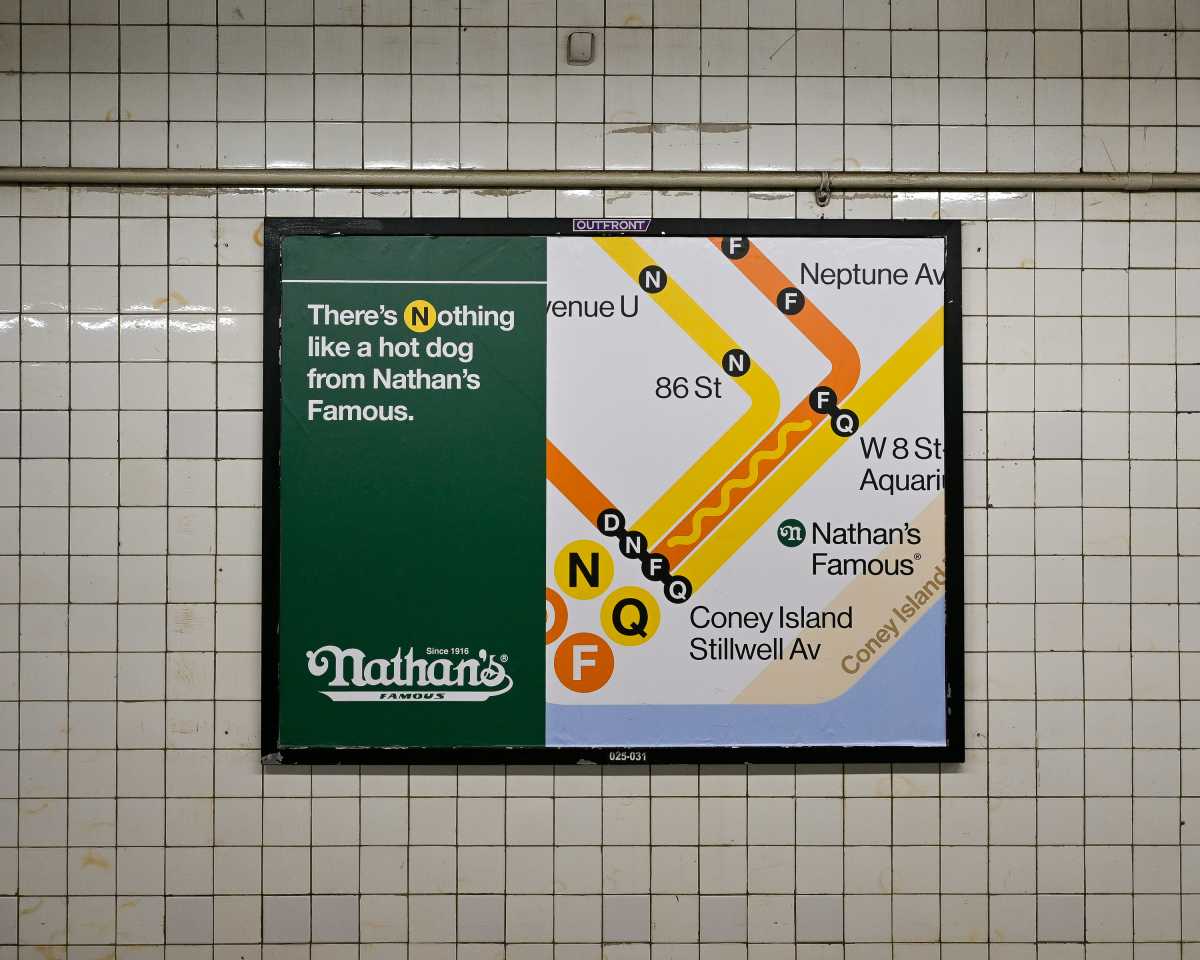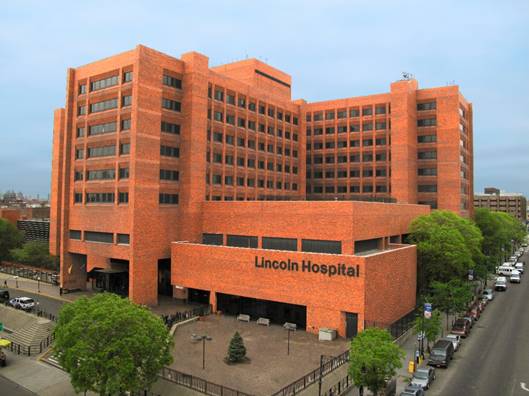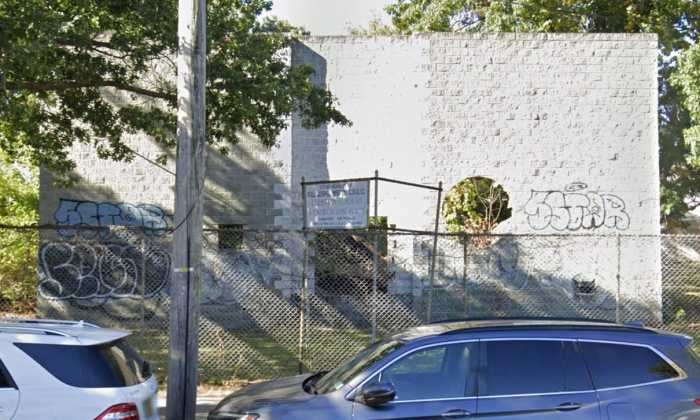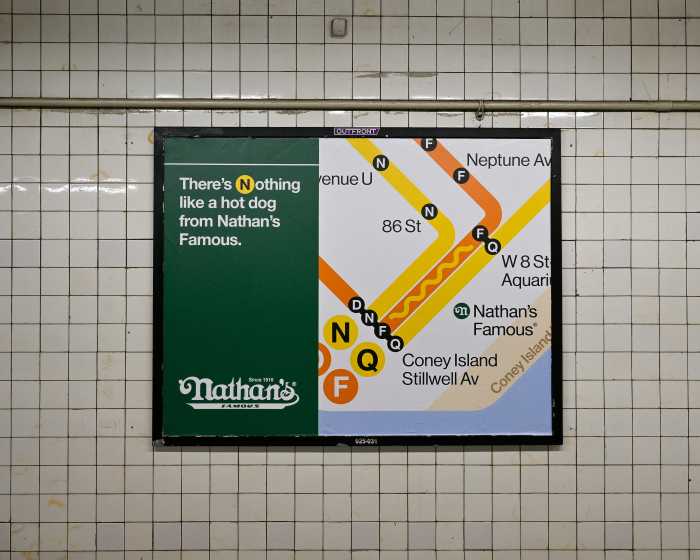By Ronda Kaysen
Tourist helicopters circling the Statue of Liberty are giving Battery Park City residents quite a headache. “It’s like we’re living at Kennedy airport…. It’s continuous, it’s non stop and it’s on a loop,” said Isaac Gindi, a Liberty Terrace resident, at a recent Community Board 1 Battery Park City committee meeting.
Gindi is not alone in his frustration about Liberty Helicopter Tours, a sightseeing helicopter company that operates out of two Manhattan heliports. Arthur Piccolo, who has an office Downtown, has launched a publicity campaign to put a stop to what he calls “a serious quality of life issue” and the city’s Economic Development Corporation concludes that tour helicopters should be prohibited altogether.
The number of news, police and tour helicopters — flying unregulated along the Hudson and East Rivers — has increased since Sept. 11th, according to many residents. Although residents concede that news and law enforcement helicopter traffic cannot be curbed, tours operating seven days a week — and according to witnesses, in formation of two or three helicopters at a time — should be controlled. “As far as I’m concerned, Liberty Tours is the problem with helicopter noise,” said Piccolo, chairperson of the Bowling Green Association. “There have been times when there has not been a moment without helicopter noise.” The traffic, he says, begins at 8 a.m. and lasts until 8 p.m.
Because of strict regulations regarding aircraft flying over Manhattan, the two rivers that flank the island are flooded with air traffic. “The East and Hudson Rivers are pretty much superhighways,” said Anthony Notaro, a Rector Place resident and chairperson of the B.P.C. committee, at a Jan. 18th full board meeting. “It’s just getting worse as we become more of a residential neighborhood.”
The Federal Aviation Administration, the agency that regulates the city’s airspace, does not regulate lower-flying helicopters over the river. “Below 1,100 ft., they’re free to operate,” said Jim Peters, a F.A.A. spokesperson. “There are voluntary helicopters routes that have been set up, but they’re voluntary.”
Helicopter operators are expected to follow F.A.A. guidelines regarding take-off, landing and safety codes. But the city has no authority over the airspace and the F.A.A. does not police the lowest stratum, although F.A.A.-trained pilots are expected to follow the rules.
“[Helicopter operators] don’t operate willy-nilly or at whim,” said Peters. “No pilot is going to fly close to a building. No pilot is going to fly close to another helicopter…. They’re not going to put themselves in a situation where they will compromise their safety.”
Residents complain that when helicopters appear to fly perilously close to their waterfront apartment windows, they have no recourse in an unregulated environment. When asked, Peters declined to give out a phone number for concerned residents to call. “This leads to a flurry of calls when people believe helicopters are in violation of rules when they may not be,” he explained.
The F.A.A. has no plans to attend a C.B. 1 meeting to discuss the issue of helicopter traffic, despite repeated requests from the board office. “They’re not that cooperative,” said Notaro of the F.A.A.
The problem is not isolated to Downtown, said Robin Forst, deputy chief of staff to City Councilmember Alan Gerson, at the full board meeting. “It’s a problem throughout the city.”
But it is difficult to tell just how many New Yorkers are affected by the helicopter noise because the city does not keep track of the number and type of helicopter-related complaints phoned in to its non-emergency help line, 311. “I have no link to what the data is,” said Jonathan Werbell, a spokesperson for Mayor Michael Bloomberg, although, “there are not a ton of complaints.” He estimated an average of two or three complaints a day, citywide. All helicopter data is passed onto the Eastern Region Helicopter Council, a trade organization with 90 company members that serves as a self-imposed watchdog of its membership.
In the late 1990s, Eastern Region established a flight path around the Battery that has been quite successful, according to Matthew Zuccaro, a spokesperson for the helicopter council. “One thing to try to get a focus on is that our operations are in compliance with the regulations and they’re safe,” he said in a telephone interview.
The community’s frustration with Liberty Tours is not entirely warranted, according to Zuccaro, who attended the Jan. 4th B.P.C. committee meeting. “Tour helicopters have been operating in the city of New York for 30 years,” he said, and Liberty Tours, one of the organization’s members, “has been one of the most responsive operators in the country.”
Gindi of Liberty Terrace, however, does not consider Liberty Tours responsive at all. “We want to get these people shut down,” he said at the Jan. 4th meeting. “Nobody can tell them what to do. They’re not concerned with the interests of the community.”
In an interview, Gindi said he and other members of his condo board reached out to various politicians and city agencies, with little success. “We ask [Liberty Tours] to cooperate with the community, but they don’t do it,” he said.
Liberty Tours declined to comment for this story, referring all comments to Eastern Region.
The E.D.C. agrees with Gindi that tour helicopters have no place in the skies above the Hudson and East Rivers. In a 1999 New York City Heliport and Helicopter Master Plan, the corporation declared that tourist helicopters do not constitute transportation and should be prohibited.
“We believe [tourist helicopters] should be prohibited because they are not part of the normal transportation commuter network,” said Joan McDonald, senior vice president of the E.D.C.’s transportation department, in a telephone interview.
Although the city cannot regulate heliports on the New Jersey side of the Hudson River, and therefore cannot entirely prohibit tourist helicopter traffic on the Hudson River, it does have control over heliports in Manhattan.
When the city’s lease with the Port Authority at the Lower Manhattan heliport at Conti Slip at the end of next year, it may very well be renegotiated to exclude tourist helicopters. “We’ll most likely renew [the lease,] but we haven’t started negotiations, so we don’t know what the terms will be,” McDonald said of the slip south of Wall St. “We think commercial flights are necessary, but we don’t know if tourist flights are necessary.” If Liberty Tours “got into the commercial business,” she added, they would still be able to use the heliport.
As for the heliport at W. 30th St., it is controlled by the Hudson River Park Trust and, since 2001, has been operating on a month-to-month lease. The Trust, a city and state agency, has its own plans for the heliport. “It will eventually be parkland,” said Chris Martin, a spokesperson for the Trust. “We don’t have funding yet and we won’t know until later this year if we have funding specifically to develop this part of the park, but that doesn’t mean we won’t get funding in the future.” Once the state allocates funding for the area, Martin expects “construction in that area” will make the heliport unusable.
Eastern Region hopes the community’s concerns will be mitigated. He plans to bring representatives from Liberty Tours to the next B.P.C. committee meeting to discuss the noise complaints and work out an agreement. According to Notaro, the committee’s chair, a date with Liberty Tours has not yet been confirmed.
Any changes on Liberty’s part will be voluntary in an unregulated environment. Zuccaro hopes the community will be patient. “There is no benefit for us to have 99 percent compliance [with our rules] and to have you get upset with us over two or three percent” noncompliance, he told the BPC committee.
Piccolo of the Bowling Green Association thinks the community has been patient enough. “We don’t live in a society where anyone can do anything they want to make money,” he said. “Loss of quality of life so one company can run a profitable business is not a fair trade off.”
WWW Downtown Express



